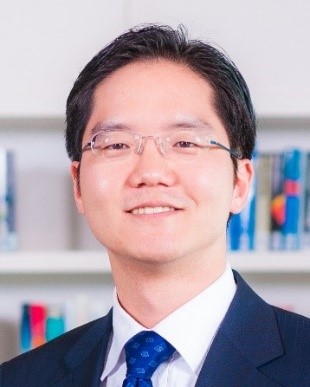由信息与通信工程学院主办的“信通论坛”活动特别邀请首尔大学Jerald Yoo副教授来校作学术交流。具体安排如下,欢迎广大师生参加。
一、主题:Low-power, Low-noise Sensor Interface Circuits for Biomedical Applications
二、主讲人:首尔大学Jerald Yoo副教授
三、时间:2024年10月29日 上午9:45-10:45
四、地点:科C216
五、内容简介:
Biomedical and healthcare applications provide attractive opportunities for the semiconductor sector. In both fields, the target is to gather data from multiple sensor nodes with minimal power consumption while maintaining low noise operation. However, designing a sensor interface circuit for such applications is challenging due to its harsh environment. Also, in such cases, the trade-off between available resources and performance among the components both in analog front-end and in the digital back-end is crucial.
This talk will cover the design strategies of sensor interface circuits. Starting from a basic op-amp, we will first explore the difficulties, limitations, and potential pitfalls in sensor interface, and strategy to overcome such issues. Low noise operation leads to two dynamic offset compensation techniques, auto-zeroing, and chopper stabilization. After that, system-level considerations for better key metrics such as energy efficiency will be introduced. Several state-of-the-art instrumentation amplifiers that emphasize on different parameters will also be discussed. We will then see how the signal analysis part impacts the analog sensor interface circuit design. The lecture will conclude with interesting aspects and opportunities that lie ahead.
六、主讲人简介:

Jerald Yoo (S’05-M’10-SM’15) received the B.S., M.S., and Ph.D. degrees in Department of Electrical Engineering from the Korea Advanced Institute of Science and Technology (KAIST), Daejeon, Korea, in 2002, 2007, and 2010, respectively. From 2010 to 2016, he was with the Department of Electrical Engineering and Computer Science, Masdar Institute, Abu Dhabi, United Arab Emirates, where he was an Associate Professor.
From 2010 to 2011, he was also with the Microsystems Technology Laboratories (MTL), Massachusetts Institute of Technology (MIT) as a visiting scholar. Between 2017 and 2024, he was with the Department of Electrical and Computer Engineering, National University of Singapore, Singapore, as an Associate Professor. Since 2024, he has been with the Department of Electrical and Computer Engineering, Seoul National University, where he is currently an Associate Professor. He has pioneered research on Body-Area Network (BAN) transceivers for communication/powering and wearable body sensor network using the planar-fashionable circuit board for a continuous health monitoring system. He authored book chapters in Biomedical CMOS ICs (Springer, 2010), Enabling the Internet of Things—From Circuits to Networks (Springer, 2017), The IoT Physical Layer (Chapter 8, Springer, 2019) and Handbook of Biochips (Biphasic Current Stimulator for Retinal Prosthesis, Springer, 2021). His current research interests include low-energy circuit technology for wearable bio-signal sensors, flexible circuit board platform, BAN for communication and powering, ASIC for piezoelectric Micromachined Ultrasonic Transducers (pMUT), and System-on-Chip (SoC) design to system realization for wearable healthcare applications.
Dr. Yoo is an IEEE Solid-State Circuits Society (SSCS) Distinguished Lecturer (2024-2025 and 2017-2018). He also served an IEEE Circuits and Systems Society (CASS) Distinguished Lecturer (2019-2021). He is the recipient or a co-recipient of several awards: IEEE International Solid-State Circuits Conference (ISSCC) 2020 and 2022 Demonstration Session Award (Certificate of Recognition), IEEE International Symposium on Circuits and Systems (ISCAS) 2015 Best Paper Award (BioCAS Track), ISCAS 2015 Runner-Up Best Student Paper Award, the Masdar Institute Best Research Award in 2015 and the IEEE Asian Solid-State Circuits Conference (A-SSCC) Outstanding Design Award (2005). He was the founding vice-chair of the IEEE SSCS United Arab Emirates (UAE) Chapter and is the chair of the IEEE SSCS Singapore Chapter. Currently, he serves as an Executive Committee as well as a Technical Program Committee Member of the IEEE International Solid-State Circuits Conference (ISSCC), ISSCC Student Research Preview (chair), and IEEE Asian Solid-State Circuits Conference (A-SSCC, Emerging Technologies, and Applications Subcommittee Chair), and Steering Committee Member of IEEE Transactions on Biomedical Circuits and Systems (TBioCAS). He is also an Analog Signal Processing Technical Committee Member of IEEE Circuits and Systems Society and was an Associate Editor of IEEE Transactions on Biomedical Circuits and Systems (TBioCAS) and IEEE Open Journal of Solid-State Circuits Society (OJ-SSCS).